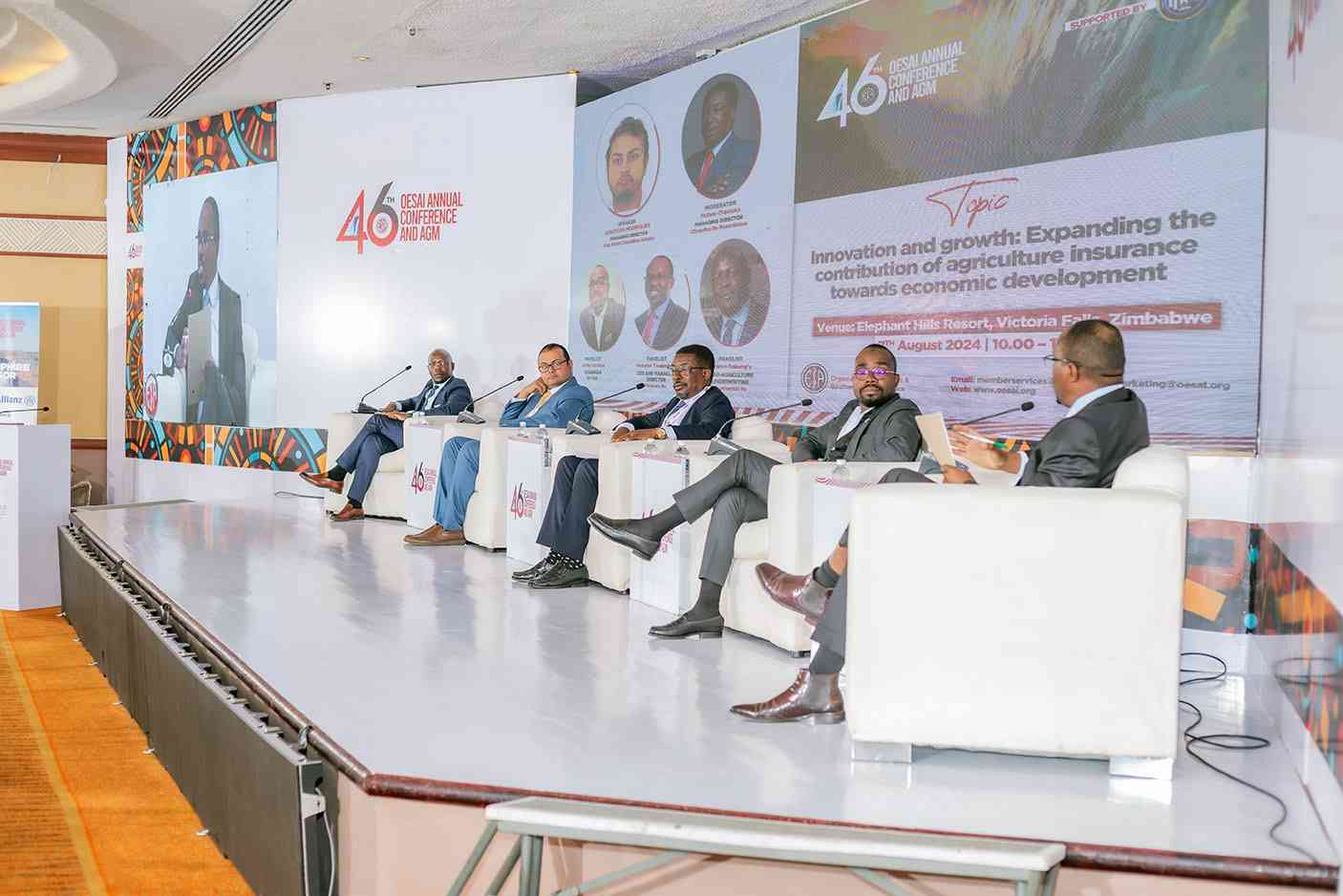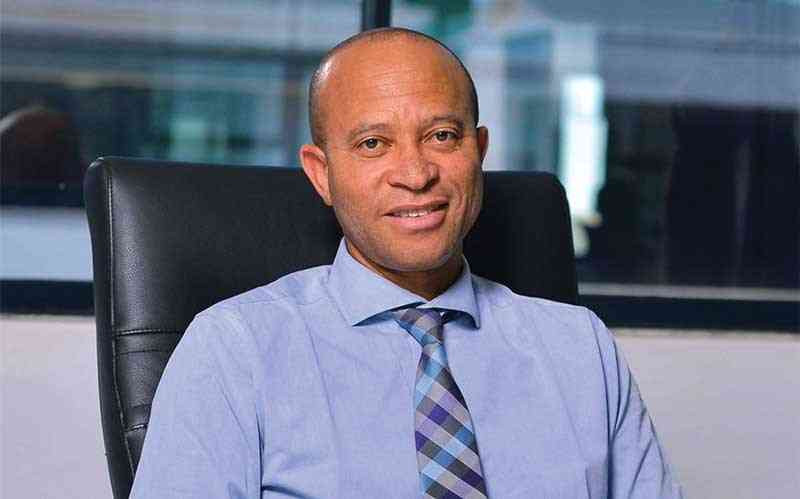
THE emergence of climate change has seen entities across the globe shifting in the way they do business with investors also looking for “safer” investments that align with the future.
This comes as they now understand that they are stewards of nature rather than owners of the world.
Considering recent events, environmental, social and governance (ESG) practices are becoming even more important with businesses now having an obligation and a means to take proactive climate action, creating a more resilient and sustainable future.
But what does this mean for insurance firms?
Discussions at the ongoing 46th OESAI Conference and AGM in Victoria Falls show that insurers are continuing to operate in an increasingly high-risk environment, navigating economic and political uncertainty.
At the centre of this are geopolitics which together with ESG and technology adaptation remain priority concerns for corporates and their insurers.
Launched at the 2012 UN Conference on Sustainable Development, the United Nations Environment Programme’s FI Principles for Sustainable Insurance (PSI) served as a global framework for the insurance industry to address ESG risks and opportunities.
The PSI initiative is the largest collaborative initiative between the UN and the insurance industry.
- Is Zimbabwe ready for green building standards?
- Is Zimbabwe ready for green building standards?
- What’s driving the push for renewable energy?
- What’s driving the push for renewable energy?
Keep Reading
At a time when the global risk environment is requiring the insurance sector to react and adapt to new and emerging risks, it is evident that the pace of change is increasing.
Thus, global regulators and lawmakers are striving to provide the necessary governance frameworks whilst allowing growth and innovation to thrive.
For insurers and investors as well as risk managers, it has emerged that the insurance industry has a key role to play in promoting economic, social and environmental sustainability.
As such, most industry players across the globe have pledged to advance the assessment management and disclosure of ESG risks and opportunities across all lines of businesses among other issues.
The African Export-Import Bank’s insurance arm, AfrexInsure chief executive officer Jonas Mushosho said ESG was obviously integrated with the way one does their business.
“And you must also ensure that the governance practices that you follow are appropriate. These are the things that are the deadlocks of sustainability. So, we ourselves follow what our parent company is doing. Our parent company is already very strong on ESG matters,” he said.
“From the time that they actually start lending to customers, there is a framework that they use on what kind of projects they will support and what kind of projects they will not support. They take all that into account because we are a developmental institution, our focus is in making sure that those parts of the community that have been left behind are brought in.”
He said this was why small and medium enterprises were important to them.
“We will give support to the big entities who can come to us directly,” Mushosho added.
“But, for the smaller entities, we work in partnership with other financial institutions that can get the big loan from us, that they distribute to the smaller players under proper conditions.”
FSD Africa Principal, Innovation for Resilience director Elias Omondi told conference delegates that emerging risks such as de-carbonisation, digitisation and decentralisation meant that insurers needed to develop products that spoke to how emerging challenges could be solved.
Omondi added that it was crucial for the industry to look into climate change and biodiversity challenges and see how they could solve the challenges Africa faced.
In the emergence of cryptocurrencies and block chain, Omondi asked how the insurance industry could be part and parcel of these current developments within the industry?
Basically, he said these innovations meant that the kind of risk that the insurance industry would be facing in the future would not be the same because people would not be going for assets.
“They will be going for services. So how then can we develop solutions for these particular services? Secondly, the risks are becoming more protracted, and it will mean that the insurance industry will not only be providing solutions for risk mitigation, but we would really need to think about risk prevention,” Omondi said.
“For instance, the issues around climate change, flooding and drought will continue being there. So, if the insurance industry will only be coming at that particular point of risk mitigation, their solutions will be more expensive and will not be attractive to these particular people that will be consuming these particular solutions.”
He said they needed to start thinking about just going beyond issues around risk protection and think about risk prevention.
“So ideally, how then do we build resilience not only to these particular communities but also prevent them from these particular challenges that will impact their livelihoods and their resources?” Omondi asked.
He further argued that the insurance industry held a lot of assets that could also be invested to address issues around the exposures that most people had in various elements.
This means investments in green energy, green ammonia, would be the future for this particular continent.
However, Sanlam chief sustainability officer Abel Sakhau argued that in the midst of most of these calamities and calls for enhanced ESG practices, Africa was not living in terms of a global agenda.
“But even in the global agenda of ESG, this is the noise that we are making as Africans. We are so quiet. And then we tend to accept policies that are coming from the global movement. That’s the challenge that African business leaders have in terms of representation in the ESG global agenda,” he said.
“To be able to have a good ESG approach and integrate it in your business, it should not compete with development. The two can co-exist. But sometimes we hear ESG and we think it’s going to take money out of the business. We don’t see ESG as an opportunity. So, today, I’m arguing that ESG is actually not something that is supposed to take money out of the business, but ESG is supposed to enhance organisational profitability.”
He said that is what ESG was meant to achieve in an organisation.
“It’s not meant to take money out of the business. But also, there is perspective in terms of ESG. Something that might be in some way big, when you look at it through the mirror, in reality it might be just small,” Sakhau said.
“It’s just how you approach it. You have to have a strategy to approach it. Are you accepting the change that’s coming? And something that is big to others might not be small. So, it's about perspective. So as an organisation, you have to have a strategy that addresses that.”
Sakhau further argued that for example, in terms of carbon, the continent was not putting a price on it, yet it produced it.
He said if the industry failed to be innovative enough in the way it designs and provides, it would always find itself on the bed taking what’s coming from the door.
“Because we are not driving the conversation, we are not driving the agenda, and we do have good policies and legislation. How many of the companies are incorporating agendas in their agencies today as part of their strategic development?” Sakhau asked.
“Because those are the things that we as Africans are saying we need to achieve. Those are the things we need to achieve to be able to get to an equitable Africa.”
He proposed that the industry should start delivering in terms of how it could make the insurance industry more competitive. This includes analysing the regulatory alignment, improving policy advocacy and capacity building.
Sakhau believed that understanding ESG protectionist policies, balancing compliance and developmental needs, advancing financial inclusion, collaborating and engaging with regulators and stakeholders, was crucial for ESG to thrive.










